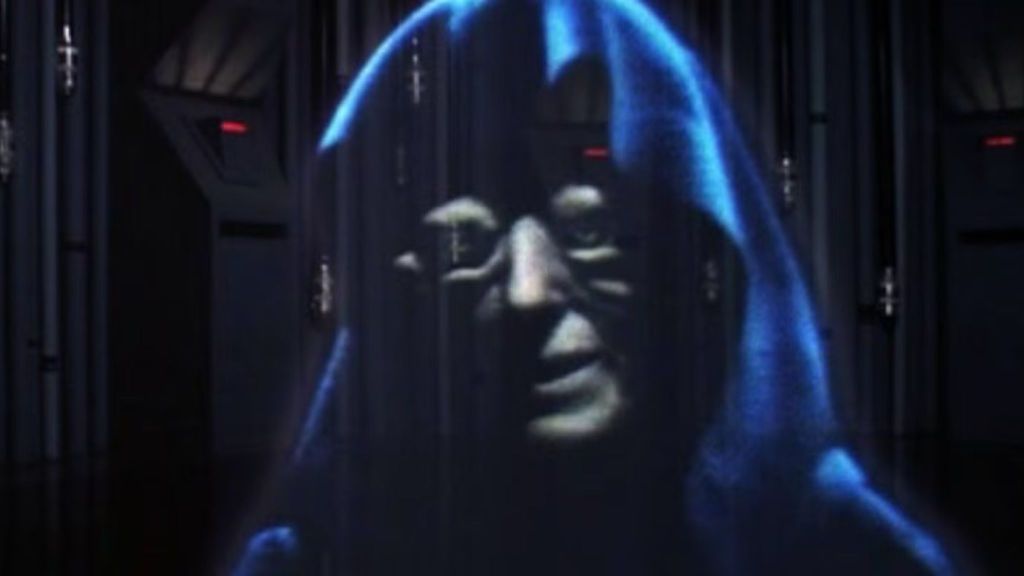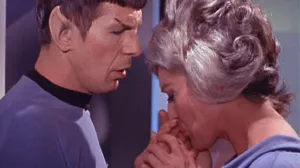Clive Revill, the versatile New Zealand-born actor who provided the original voice of Emperor Palpatine in Star Wars: The Empire Strikes Back, died March 11th at a care facility in Sherman Oaks following a battle with dementia. He was 94 years old. The actor’s daughter, Kate Revill, confirmed his passing, which occurred just over a month before what would have been his 95th birthday. Beyond his brief but pivotal role in the Star Wars saga, Revill built an impressive career that included two Tony Award nominations, membership in the Royal Shakespeare Company, performances in various Hollywood productions, and voice acting work in animation and video games that endeared him to generations of fans across multiple beloved franchises.
Videos by ComicBook.com
Revill’s contribution to the Star Wars universe came in 1980 when director Irvin Kershner recruited him to record the menacing lines for Emperor Palpatine’s holographic appearance during a pivotal scene with Darth Vader. Though his voice performance was later replaced by Ian McDiarmid’s for the 2004 DVD release of the film, Revill’s original delivery created the first impression of the saga’s ultimate villain for millions of viewers. Revill embraced this legacy throughout the later years of his career, often delighting fans by recreating his chilling line, “There is a great disturbance in the Force.” In a 2015 interview with The Spectrum, Revill recounted how people would approach him at conventions, and he would tell them to get close and shut their eyes before delivering the Emperor’s haunting voice, noting that “people turn white, and one nearly fainted!”
[RELATED: Star Wars Fans Make The Empire Strikes Back Discovery 45 Years Later]
Born Clive Selsby Revill on April 18, 1930, in Wellington, New Zealand, the actor’s path to stardom began unusually. Working as an actuary in a bank, Revill met legendary actor Laurence Olivier and his wife, actress Vivien Leigh, during their tour of New Zealand. Impressed by the young man’s appreciation for Shakespeare, Olivier encouraged Revill to attend his Old Vic Theatre School in Bristol. Despite initial struggles after making the journey to England in 1950, Revill persevered, later crediting a transformative conversation with his movement instructor who urged him to “find the truth within yourself.” This counsel shaped his approach to acting throughout his distinguished career spanning Broadway, film, and television.
Clive Revill’s Legacy Beyond Star Wars

Revill’s contributions to genre entertainment extended well beyond his brief but memorable role in the Star Wars saga. In 1992, he joined another iconic franchise when he provided the voice of Alfred Pennyworth in early episodes of Batman: The Animated Series, adding to his growing roster of beloved characters in genre productions. His connection to the Star Wars universe continued through various video games where he voiced different characters, maintaining his association with the franchise that gave him his most recognizable role.
Horror fans recognize Revill from his performance as physicist Lionel Barrett in the 1973 supernatural thriller The Legend of Hell House, where he starred opposite Roddy McDowall in an investigation of paranormal phenomena. Comedy audiences might recall his appearances in Mel Brooks’ Robin Hood: Men in Tights and Dracula: Dead and Loving It, while older television viewers would remember his numerous guest roles on popular series ranging from Columbo and Murder, She Wrote to Remington Steele and Star Trek: The Next Generation.
Revill’s stage career was equally impressive, with his Broadway debut coming in 1952’s Mr. Pickwick. His ability to transform himself earned him Tony Award nominations for two musical roles: as bar owner Bob-Le-Hotu in 1961’s Irma la Douce and as the charismatic villain Fagin in 1963’s Oliver! His theatrical talent caught the attention of filmmaker Billy Wilder, who cast him in two notable productions: 1970’s The Private Life of Sherlock Holmes, where he portrayed a representative of a Russian ballerina, and 1972’s Avanti!, playing a besieged hotel manager, a performance that earned him a Golden Globe nomination.
Revill is survived by his daughter Kate and granddaughter Kayla, who carry on his legacy as audiences continue to discover his work through streaming services and physical media collections that preserve his remarkable performances across multiple generations of entertainment.








